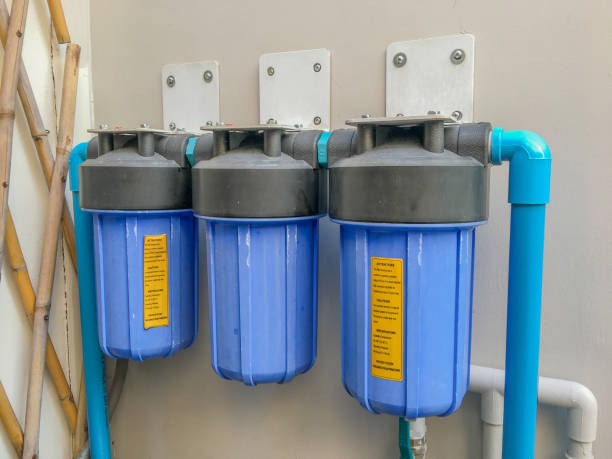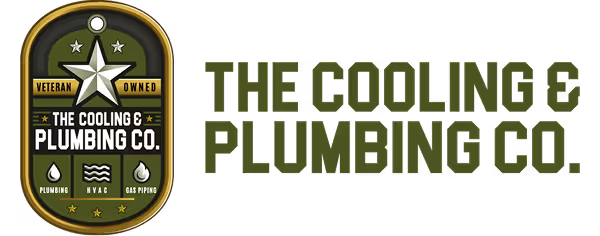Water Filtration in Ahwatukee, AZ
Clean, reliable drinking water is one of the most important upgrades you can make for your Ahwatukee home. Because the Phoenix metro area uses treated municipal supplies and groundwater mixes, many residents notice mineral scale, chlorine taste, or occasional sediment that affects water quality, appliances, and daily comfort. This page explains professional water filtration and purification options, our on-site testing and installation process, maintenance expectations, and the certifications and protections that back a smart system choice for Ahwatukee families.

Why water filtration matters in Ahwatukee, AZ
- Arizona’s arid climate increases reliance on irrigation and higher indoor water use, which amplifies the effects of hard water on pipes, fixtures, and water-using appliances.
- Municipal treatment commonly leaves trace disinfectants (chlorine or chloramine) and dissolved minerals that influence taste and scale buildup.
- Local distribution infrastructure and older home plumbing can introduce sediment or trace contaminants that point-of-use filtration or whole-home solutions can address.
Benefits you can expect
- Improved taste and odor — remove chlorine, chloramine, and organic tastes.
- Reduced scale and mineral buildup — protect water heaters, dishwashers, and faucets from hardness damage.
- Cleaner fixtures and laundry — fewer spots on glassware and brighter fabrics.
- Health and peace of mind — targeted reduction of contaminants such as lead, sediment, and certain dissolved solids depending on system choice.
- Less reliance on bottled water — environmentally friendly and cost effective over time.
Common water filtration systems we recommend in Ahwatukee
- Whole‑home sediment and carbon systems
Installed where the main water line enters the house to reduce sand, rust, and chlorine taste for all outlets. Ideal for preventing scale and protecting appliances. - Reverse osmosis (RO) drinking systems
Under-sink RO units that remove dissolved solids, many salts, and certain contaminants to produce near-purified water for drinking and cooking. - Under-sink carbon filters
Point-of-use units that address taste and odor and remove chlorine and many organic compounds without the footprint of RO. - Specialty softening and conditioning options
Salt-based or salt-free solutions to combat hardness and reduce scale on plumbing and fixtures. - UV disinfection (where needed)
Used with filtration when bacterial contamination is suspected or for private well users; provides an additional layer of protection.
Typical water issues seen in Ahwatukee homes
- Hard water scale on faucets and water heaters
- Chlorine or chemical taste from municipal treatment
- Fine sediment or discoloration after city work or pipe disturbances
- Elevated total dissolved solids (TDS) affecting taste and appliance life
- Localized plumbing corrosion or trace lead in older service lines
On-site water testing and consultation process
- Initial conversation and history
Discuss household size, water use patterns, symptoms (taste, staining, low pressure), and any known plumbing age or well use. - Rapid field testing
Technicians perform TDS meter readings, hardness tests, pH, chlorine presence, and visual sediment checks. These tests take 20–40 minutes and identify obvious needs. - Comprehensive lab analysis (if required)
For persistent or complex issues we collect samples for certified lab analysis (typical turnaround 3–7 business days) to test for heavy metals, organics, and microbiological contaminants. - Customized recommendation
Based on results we propose a system or combination of systems (whole-home + RO, under-sink carbon, UV add-on), explain expected contaminant reductions, filter life, and upkeep expectations.
Installation steps and timeline
- Pre-install prep: Confirm system location, plumbing access, and any required shutoffs. Site evaluation typically completed during the consultation.
- Typical timelines:
- Under-sink carbon or RO units: 2–4 hours
- Whole-home sediment/carbon systems: 3–6 hours (may require repositioning piping or mounting a tank)
- Water softener or larger conditioning systems: 4–8 hours (depends on drain and electrical needs)
- UV systems: additional 1–2 hours when paired with filtration
- What to expect during installation: technicians arrive with necessary parts, isolate the supply briefly for tie‑in, perform fittings, flush and test the system, and walk through operation and filter replacement access points.
Routine maintenance and filter replacement schedules
- Sediment pre-filters (whole-home): inspect every 3 months; replace 6–12 months depending on sediment load.
- Carbon filters (point-of-use or whole-home): replace every 6–12 months to maintain taste and chlorine removal.
- RO pre- and post-filters: pre-filters typically changed every 6–12 months; RO membranes generally last 2–4 years depending on feed water and maintenance.
- UV lamps: replace annually to ensure consistent disinfection.
- System checks: annual performance checks are recommended — verify flow rates, test TDS on RO, and inspect housings and seals.Regular maintenance preserves contaminant removal performance, prolongs equipment life, and avoids pressure or flow issues common in hard-water conditions.
Warranties, certifications, and quality assurances
- Systems can be installed by licensed, bonded, and insured technicians with industry-standard certifications.
- Look for filtration components certified to NSF/ANSI standards for specific contaminant reductions (for example NSF/ANSI 53 for health-related contaminants, NSF/ANSI 42 for aesthetic improvements).
- Equipment warranties and labor coverage vary by manufacturer and installer; standard professional installs often include workmanship guarantees and parts warranties to protect your investment.
Choosing the right system for your home
- Single-appliance or point-of-use needs (better tasting drinking water) are often solved with an under-sink RO or carbon unit.
- Whole-home concerns (scale, chlorine, sediment) call for a sediment/carbon system or conditioning solution that treats all water entering the home.
- If a private well serves your property, combined filtration plus UV is commonly recommended to address both particulate and microbial risks.
Final considerations
Investing in professional water filtration tailored to Ahwatukee conditions improves daily living, protects appliances from hard‑water wear, and delivers consistent drinking water quality. A proper on-site test and a clear maintenance plan ensure performance and predictable operating costs over time. Licensed technicians and certified components provide the compliance and reliability homeowners expect for long-term water quality improvements.






